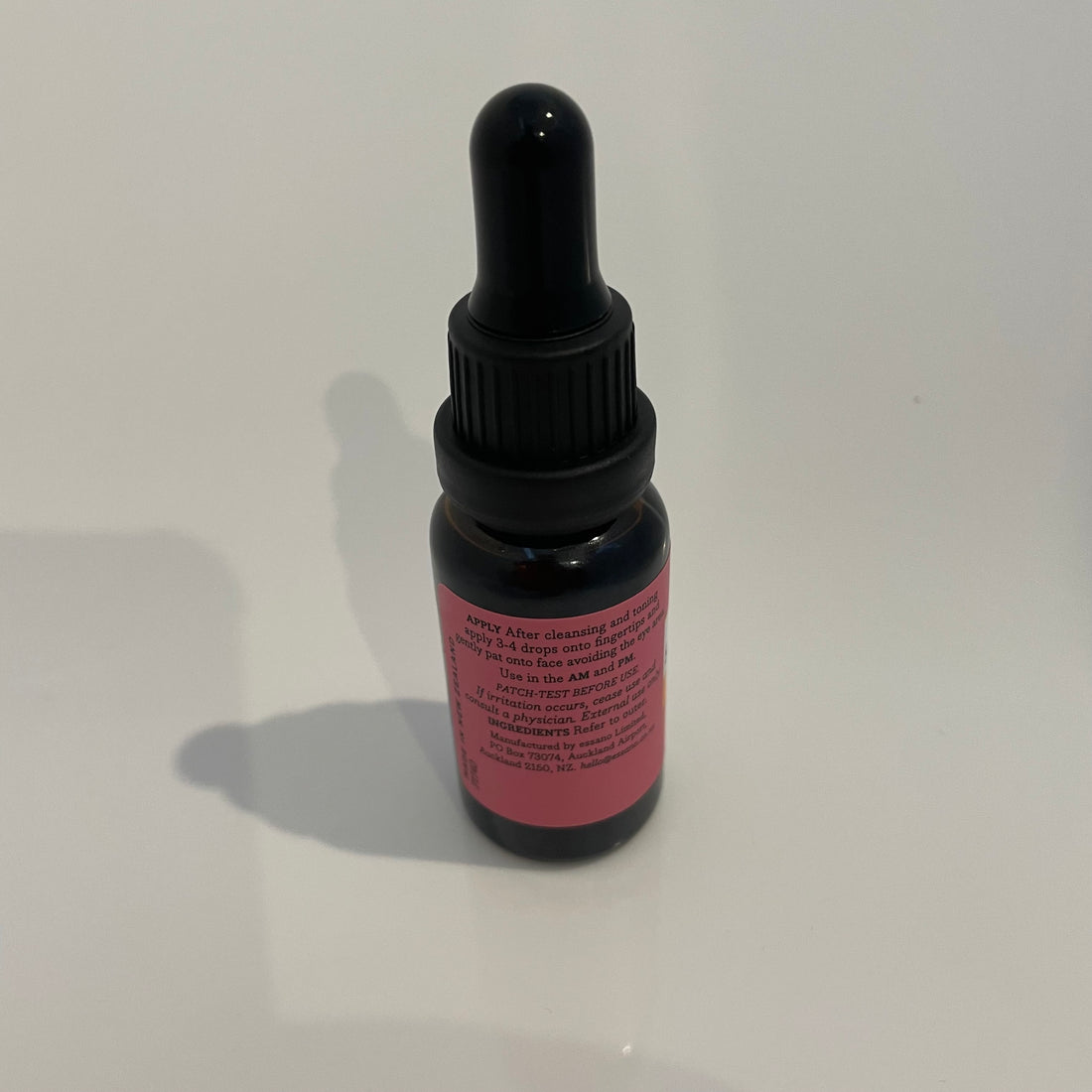
Is Vitamin C important in your skin care routine?
Share
Is Vitamin C important in your skin care routine? This believe it or not is a frequent question for me. If your thirsty, do you drink water? Of course! Vitamin C is imperative in your daily skin care regime/routine.
So, Graceful Lilly has gone 1 step further. We include a healthy dose of Vitamin C in your daily moisturiser.
Please be very careful who you buy your Vitamin C from and where you store it. Vitamin C is a very delicate vitamin. It must be bought from a reputable seller, stored in a amber glass container (not clear) and preferably kept in the fridge until it is time to use. An amber container is best, unless of course it is already mixed with other ingredients and packaged as a moisturiser.
If your Vitamin C has changed colour to a yellowish tinge, it has become what we call "Oxidised" and it's time to throw out.
"Topical vitamin C or ascorbic acid is a popular vitamin being added to skin care products. Currently, there are many advertising claims of a topical formulation containing antioxidants that will protect against and reverse ageing. However, the truth is that many of the available formulations contain very low concentrations of antioxidants that are not well absorbed by the skin. Vitamin C is an antioxidant, which when manufactured into a stable topical formulation, is proven to be effective in protecting against photoageing of the skin.
How does topical vitamin C work?
To understand how topical vitamin C works an understanding of the relationship between free radicals and antioxidants in the body is necessary.
- Free radicals are molecules created as a by-product of oxygen metabolism as our bodies create energy at the cellular level. The oxygen molecule loses one electron, turning it into a free radical.
- The free radical formation can also be augmented by external factors such as pollutants, sunlight, radiation, emotional stress, smoking, excessive alcohol, infection, and some drugs.
- Free radicals float around the body looking for electrons to rebalance themselves. If necessary, free radicals steal electrons from normal healthy cells, this being the cause of various conditions ranging from accelerated ageing to deadly cancers.
- Antioxidants protect healthy cells by donating an electron to the free radicals. The body produces antioxidants naturally, and we can also get them from the foods we eat and from supplements.
Topical vitamin C has shown to protect the skin from UV damage caused by prolonged sun exposure by reducing the amount of free radical formation and sunburn cells. Exposure to UV light has also shown to decrease the naturally occurring vitamin C levels in the skin. Thus the topical application of vitamin C restores these photoprotectant levels. Other studies also suggest that vitamin C may play a part in the collagen biosynthetic pathway by activating collagen metabolism and dermal synthesis of elastic fibres.
What is topical vitamin C used for?
Studies have shown the following benefits of using topical vitamin C preparations.
- Improve skin appearance by reducing fine lines and wrinkles.
- Wound healing as it aids in stabilising collagen.
- Protects against or lessens the severity of sunburns.
Who should use topical vitamin C?
Everyone will benefit from maintaining adequate vitamin C levels. For most people, this can be achieved by eating more than five servings of fruit, vegetables and juices daily. There are many topical vitamin C preparations available that claim to benefit photoaged skin. However, almost all of these claims have no rigorous scientific testing to back them.
A correctly formulated topical vitamin C preparation is a costly process. Many available formulations are ineffective. The problems lie in the fact that vitamin C is most commonly found in the form, L-ascorbic acid, which is highly unstable when exposed to oxygen, making it useless. Also, many of the currently available topical vitamin C preparations do not penetrate the skin sufficiently to make any difference. Research is underway to optimise a stable and effective topical vitamin C formulation.
The treatment and prevention of scurvy, which is due to dietary vitamin C deficiency, requires oral replacement of ascorbic acid." https://dermnetnz.org/topics/topical-vitamin-c
Vitamin C is as imperative on your skin as it is in your system. Everyone enjoys an orange after a long hard workout or a quarter of running around at the football. Yes, this antioxidant is as important on your skin as it is in your stomach.
